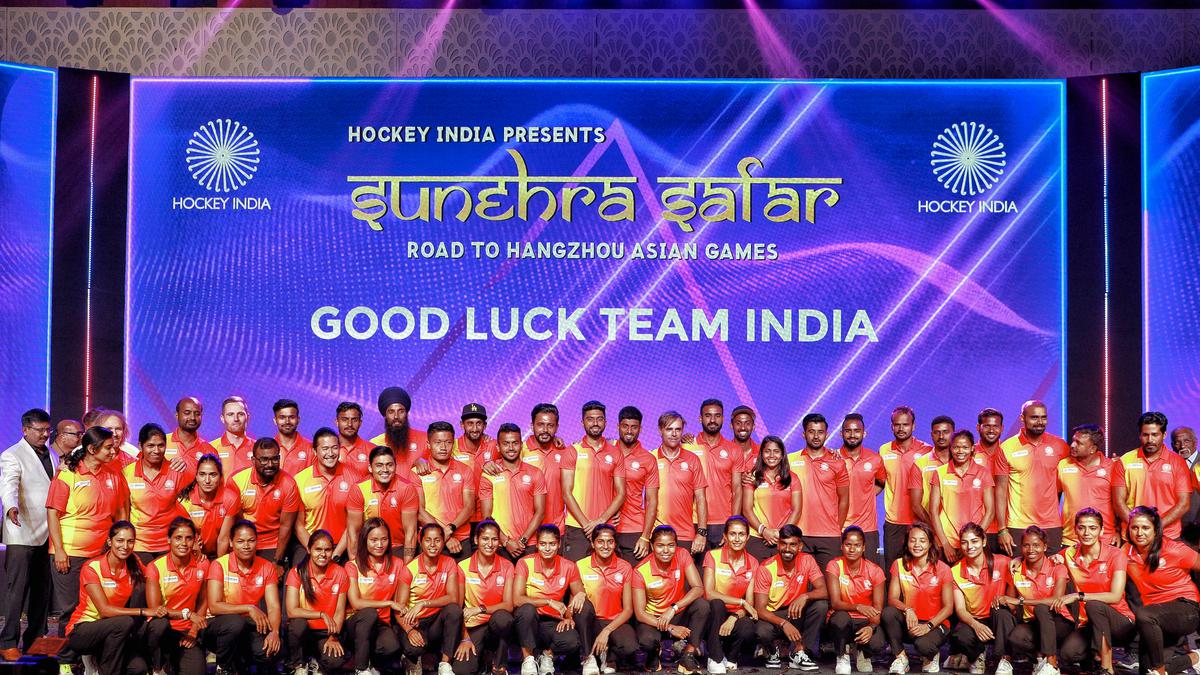Both the men's and women's hockey teams from India will be vying for podium results in Hangzhou in order to earn spots in the 2016 Summer Olympics.
The men's and women's hockey teams from India will try to qualify for the Paris Olympics with a solid performance in China. Although it is expected, anything less than a gold medal at the Asian Games would be a huge letdown.
The third-placed Indian men's team, which is also the top-ranked Asian squad, has a difficult task ahead of them. Despite complaints about the timing and venue, the recent Asian Champions Trophy in Chennai provided excellent practise for all teams ahead of the Asian Games. They were able to assess their rivals' rivalry as well as their own strengths and limitations. India's triumph in the competition supported its assertion that it is the finest team on the continent, both on paper and in practise.
Along with Japan, Bangladesh, Pakistan, Singapore, and Uzbekistan, India is in Pool A. India must be in the top two in order to advance to the semifinals. Although it might sound simple, the men's biggest difficulty will be to maintain their focus and not underestimate their opponents. The defending champions Pakistan and Japan are both strong opponents who could pull off an unexpected victory.
India has to take note of what happened in 2018. Although it had a comfortable lead, it made a crucial defensive error in the semifinal against Malaysia, which resulted in a shootout loss. India's on-field discipline is still hit-or-miss, despite the fact that a lot has changed since then in terms of both personnel and performances. The team would be hoping to avoid any mistakes this time.
The team, coached by Harmanpreet Singh, features both experienced players like Lalit Upadhyay and younger players like Akashdeep Singh up front. Selvam Karthi and Akashdeep Karthi are both unavailable due to injury. Although there are no significant surprises, the absence of Jugraj Singh as a backup for Harmanpreet in the penalty corners raises further questions. Varun Kumar has not been performing at his best lately. Tenth-placed Malaysia is likely to finish in the top two in Pool B. This prepares the two top teams in the competition for a possibly challenging semifinal matchup. A formidable opponent in Pool B is South Korea.
With somewhat lesser opponents in Pool A, it might be slightly simpler for the women to go to the semifinals, but it won't be an easy road after that. The actual team selection followed the expected patterns. The Indian women, who are also the highest-ranked team in the competition at seventh in the world, are anticipated to reach the cut alongside South Korea, Hong Kong, Malaysia, Singapore, and South Korea.
China, Japan, Indonesia, Kazakhstan, and Thailand are included in the other pool. China and Japan are anticipated to qualify for the semifinals. Asia's female competitors are fierce, with Japan, China, and Korea closely trailing India in the rankings at positions 10 through 12. The Indian women's form and fitness will be put to the test when they play either Japan or China in the semifinals. The team's recent performances against challenging opponents from Europe—teams like Australia, England, and Germany—were not very impressive, but the Indian ladies will be hoping to put the lessons they gained into practise in Hangzhou.
